An entrepreneur’s understanding of search engine market share influences two aspects of their online marketing: paid advertising and search engine optimization. Regardless of industry or business size, search engines can help a brand dominate the online space.
While there may be one very obvious giant in the search engine space, it’s important for marketers to know that Google isn’t the market leader everywhere. In addition, there are several niche search engines whose market share has been steadily growing in recent years.
In this piece, we’ll walk you through the most popular search engines you should know about, as well as some of the trends that could help shape your search engine marketing strategy.
Which search engines have the biggest market share worldwide?
Google has a market share of over 92%. Other established platforms such as Bing (3.04%) and Yahoo (1.39%) trail behind, albeit from a far distance. Geographically-targeted web search engines such as Baidu (China), Yandex (Russia) beat Google in their respective countries. And specialized search engines such DuckDuckGo and Ecosia offer something unique and useful that Google has yet to match.
Google’s landslide victory over other search engines isn’t surprising. When marketers talk about SEO, they’re almost always referring to Google—more than search engines in general. And you, yourself, might have used the phrase “Google it” when telling someone to look something up online.
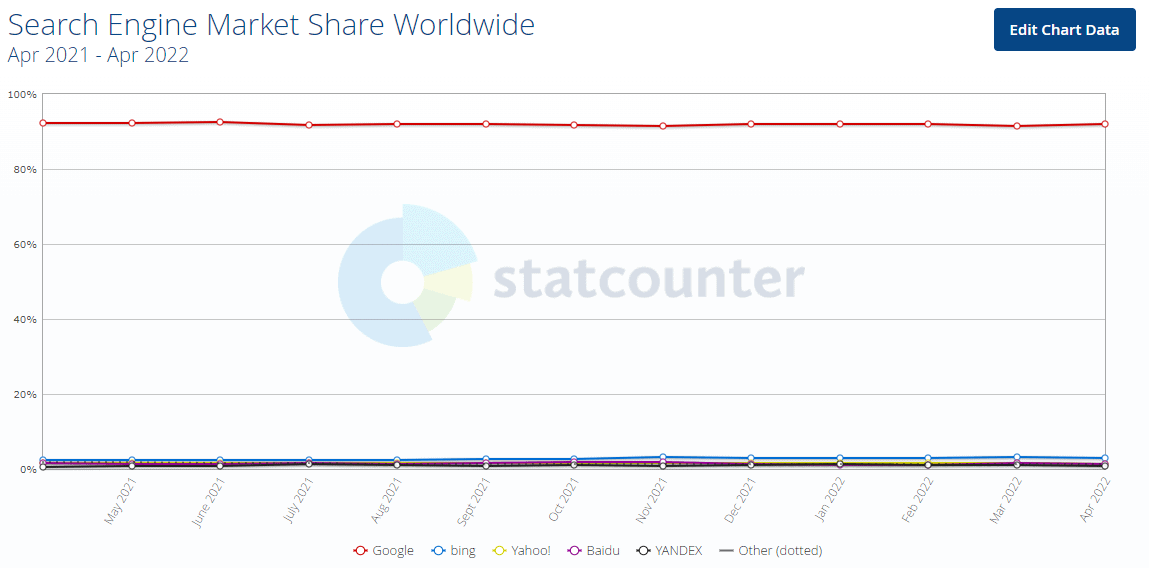
Google’s dominance in the search engine market over the last year. Source: Stat Counter
But Google hasn’t always been the market leader. In the early 2000s, Yahoo led the pack, followed by Microsoft’s MSN (now Bing). Other players were Altavista and Ask.com. Altavista was launched in 1995, but lost out to Google in the search engine race, and was acquired by Yahoo. Ask is still around, but not as a search engine. They rebranded their platform as a “question answering–focused e-business.”
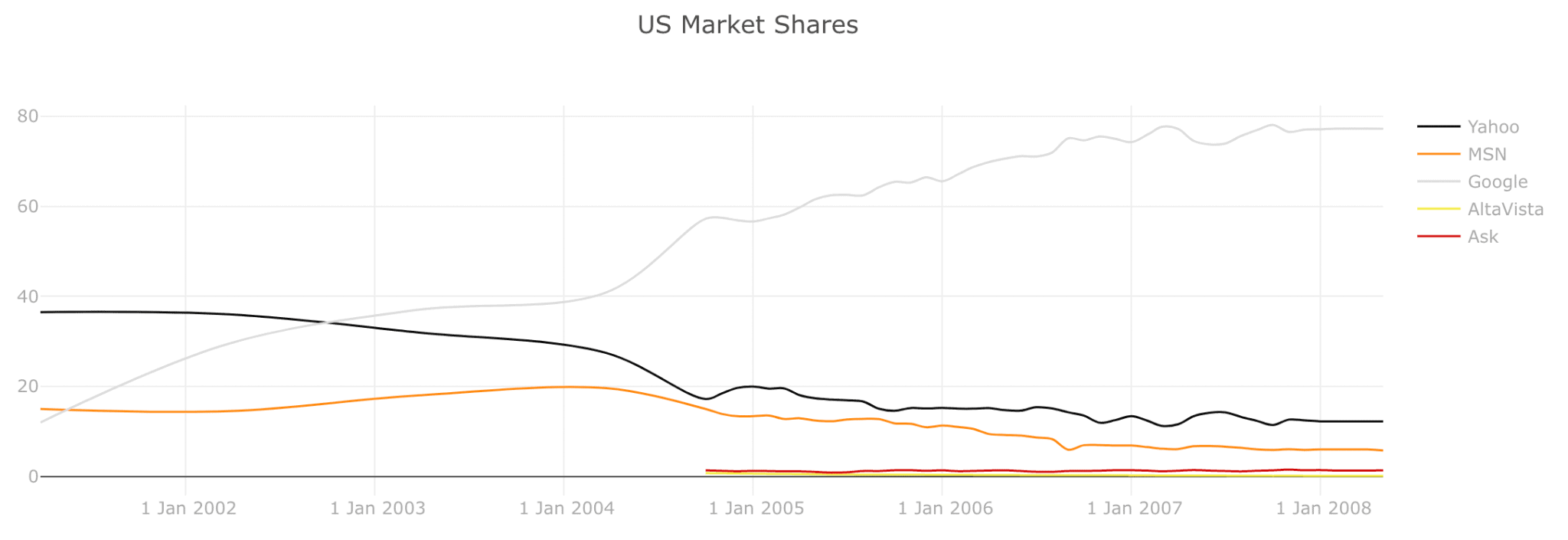
Search Engine market share from 2002 to 2008. Source: DataHub
New players have emerged over time, such as Yandex, Baidu, DuckDuckGo, and Ecosia. The search engine landscape has changed. But the top 3 players remain the same: Google, Bing (then MSN), and Yahoo.
Search Engine Market Share By Continent
Using GS Stats Counter, we tallied the search engine market shares for 6 continents: North America, Europe, South America, Asia, Oceania, and Africa. For obvious reasons, Antarctica had no data to work with.
| # | North America | Europe | South America | Asia | Oceania | Africa |
|---|---|---|---|---|---|---|
| 1 |
88.73% |
Google
92.33% |
Google
96.96% |
Google
92.46% |
Google
93.73% |
96.06% |
| 2 |
bing 6.09% |
bing
3.43% |
bing
1.95% |
Baidu
2.85% |
bing
4.14% |
bing 2.73% |
| 3 |
Yahoo! 2.73% |
YANDEX
1.8% |
Yahoo!
0.73% |
bing
1.53% |
DuckDuckGo
0.94% |
Yahoo! 0.39% |
| 4 |
DuckDuckGo 2.03% |
Yahoo!
0.95% |
DuckDuckGo
0.13% |
Yahoo!
1.18% |
Yahoo!
0.87% |
Petal Search 0.36% |
| 5 | Ecosia
0.12% |
DuckDuckGo
0.61% |
Ecosia
0.1% |
YANDEX
1.01% |
Ecosia
0.18% |
ananzi 0.24% |
| 6 | YANDEX
0.06% |
Ecosia
0.37% |
Petal Search
0.09% |
Naver
0.27% |
YANDEX
0.03% |
DuckDuckGo 0.11% |
| Source: | Stat Counter | Stat Counter | Stat Counter | Stat Counter | Stat Counter | Stat Counter |
In all six continents, Google maintains its leadership position. Microsoft’s Bing is a distant second for most continents, except in Asia, where Baidu does better with a 1.32% lead. And it’s interesting to note that Bing is more used in North America than in other regions. Yahoo is the third choice for North America, South America, and Africa, but the third position varies in Europe (Yandex), Asia (Bing), and Oceania (DuckDuckGo).
There are no prominent platforms for spots four to six, but there are two obvious trends. First, Ecosia seems to trail behind DuckDuckGo in all instances. Second, new players emerge depending on the continent, such as Petal Search in South America and Africa, Ananzi in Africa, and Naver in Asia.
- Petal Search: Huawei’s search engine
- Ananzi: A directory of South Africa’s classified ads and businesses
- Naver: South Korea’s s first web portal with its own search engine
1. Google Search Engine Market Share: 92%
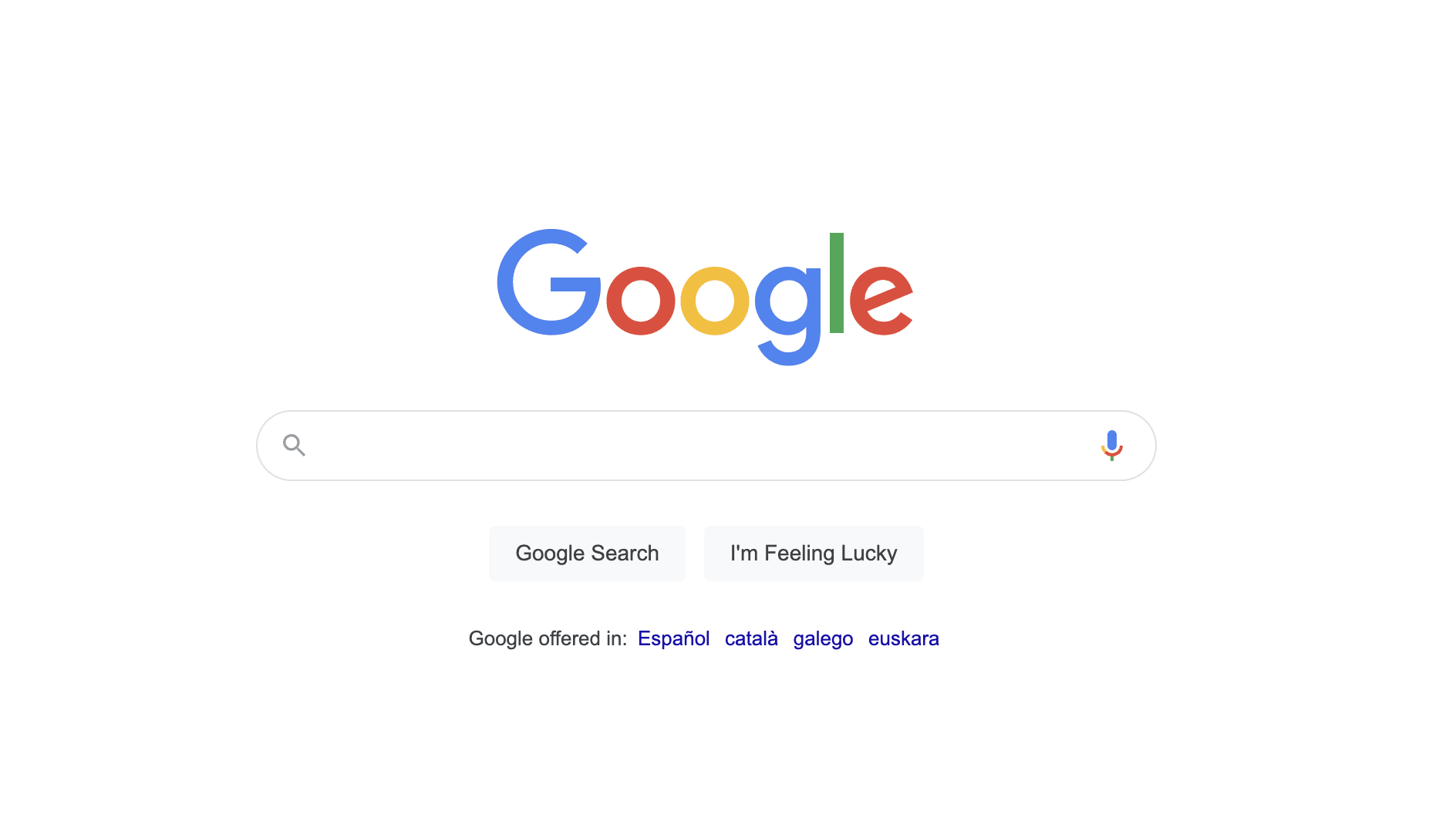
According to Hubspot, Google processes approximately 63,000 searches every second, equating to approximately 5.6 billion searches per day and about 2 trillion worldwide each year. For many businesses, dominating the searches organically is a top priority and can offset costly ads, which, when measured across all industries, are conservatively estimated to cost $48.96 per click for Google AdWords and $75.51 for display.
Other Google search engine marketing facts you should know about:
- Google’s desktop search engine market share is 85.21%.
- Google’s mobile search engine market share is 95.43%.
- Users can use up to 3 languages at a time: one key language plus two assistant languages.
- Search terms are frequently trend-related.

Google also offers a variety of analytics tools businesses can leverage to strengthen their online market positioning. Since Google receives 95% of searches on mobile devices, it’s safe to say that it receives almost all of the 54.4% of overall web traffic that originates from handheld devices.
Google’s massive traffic potential makes it more lucrative to run Google organic or paid searches than other search engines, but it’s much more challenging to stand out due to the high number of competitors. To make things even spicier, the sophisticated algorithm changes require constant attention and action from marketers and business owners.
Google’s Humble Beginnings and Continued Success
Larry Page and Sergey Brin founded Google on September 4, 1998, piggybacking off of Stanford University’s domain as google.stanford.edu and z.stanford.edu. Nevertheless, users saw its potential and considered it a superior “web portal” compared to its counterparts.
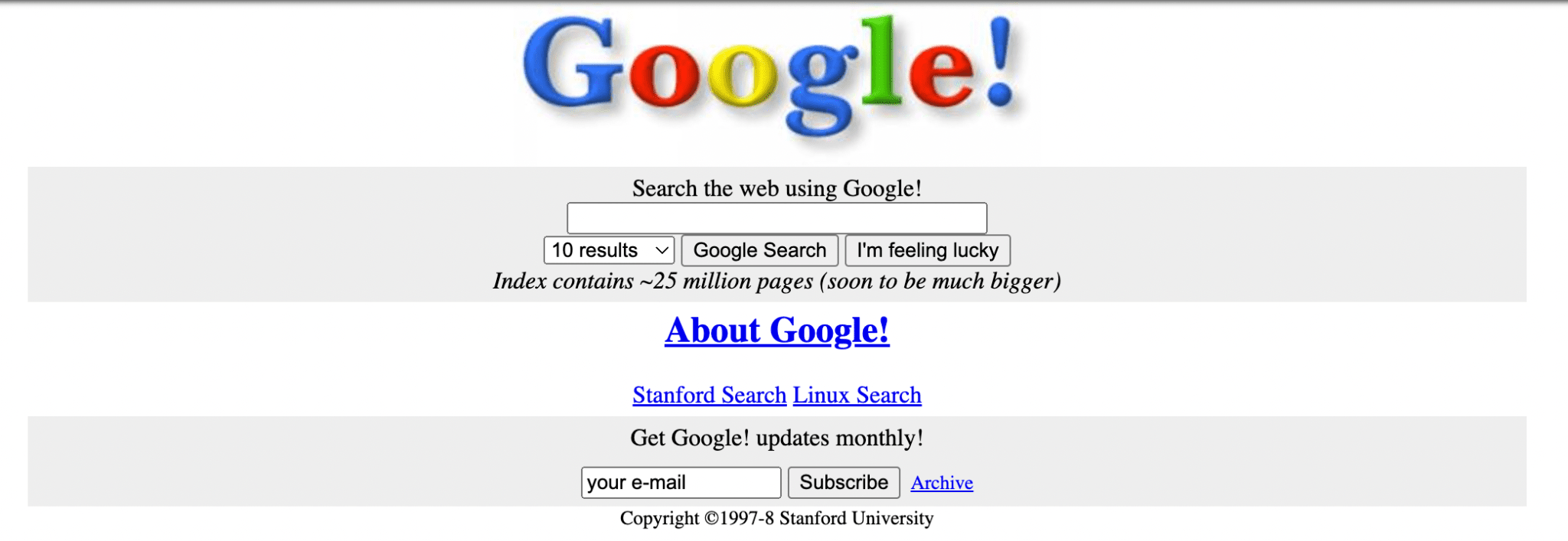
Here’s what Google looked like in the old days. Source: google.stanford.edu
When the 2000s rolled in, the platform gained more popularity because of its simplicity and responsiveness. They launched several new search categories, such as Google Books, Google News, and Google Scholar. At the same time, they got busy with search algorithm changes, or as the company calls it, “core updates.” Some of the most notable are Penguin, Panda, and Hummingbird.
Google strives to provide internet users with relevant search results by using unique algorithms and ranking factors. The platform initially only made modest updates, but now it makes thousands of system updates every year.
While these make it harder for marketers and businesses to keep up, users generally benefit greatly from these thoughtful tweaks. For instance, Google’s latest information analytics technology, MUM, is multimodal and revolutionizes the way people get answers on the web. It gives Google access to natural language processing to provide deeper and more comprehensive responses to complex queries.
2. Bing: The Go-Getter (3.04%)
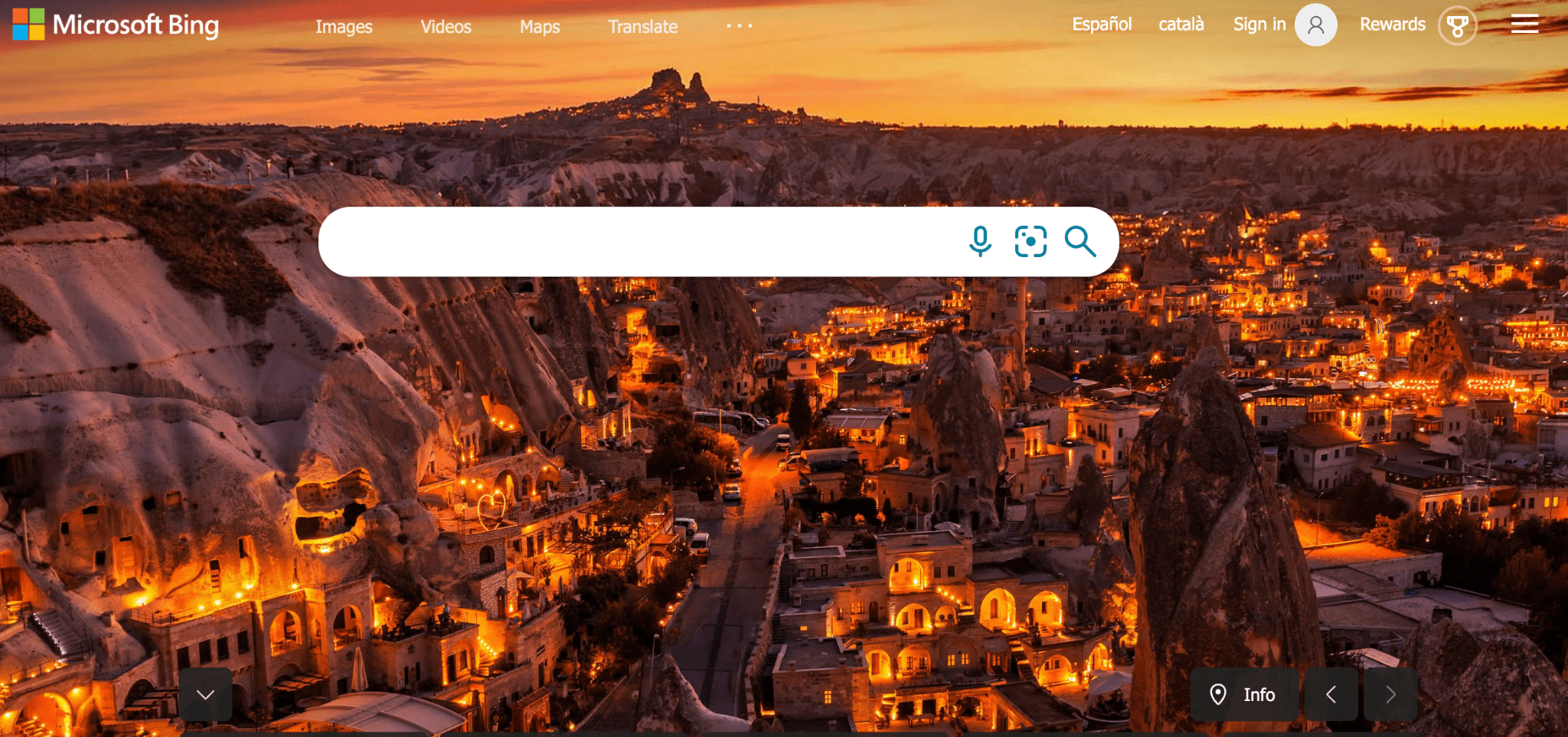
Bing takes second place, but it’s not a close race. Currently, the company has a market share of 3.04%. The search engine usually gets a billion visits each month, with an average ad cost per click of $1.54. The CPC is certainly a lot lower than Google’s, but remember: you’re essentially exposing your marketing efforts to fewer viewers.
Some important Bing search engine marketing knowledge:
- Desktop search engine market share is 8.06%.
- Mobile search engine market share is 1.48%.
- Bing is available in 105 languages and 238 countries.
And there’s another one, my favorite actually:
Most of Bing traffic doesn’t come from intentional users. It’s long been the default search engine on Microsoft devices. Bing users are between 45 and 64 years old, are less tech-savvy, and simply go with the default settings.
However, it doesn’t mean that those using default settings are not actively switching to Google. According to Keywords Everywhere, there are 2900 searches a month for the keyword, “How to remove bing from chrome?”

A Bing and Yahoo! team-up in 2012 has also helped both engines grow their market share. When people use Yahoo! to search, many of their results actually originate from Bing.
Bing’s Ambitious History
Bing was launched in 2009, more than a decade after Google, in Microsoft’s attempt to compete with the search engine leader. Their first foray into the search engine market, Live Search, didn’t succeed in beating Google and Yahoo.
Bing was marketed as a decision engine. It provided more information on the search pages than usual, so you could see which links to explore from the get-go. Often, the displayed information answered your question, so you didn’t have to click on the actual link. Like Google, as we know now, Bing suggested related searches but also showed previous searches on the same page.
3. Yahoo: The Pioneer (1.39%)
Verizon’s Yahoo’s search market share is 1.39%. According to SEO professional Brack Nelson, “The best thing about Yahoo is you can filter your results in many ways. (For example) you can refine your search results to see content based on when it was published on the web. You can filter search results by category also.” Finding a specific type of content is a lot easier this way.
However, Yahoo’s homepage presents a different roadblock. Its cluttered design differs greatly from what’s usually seen on Google.
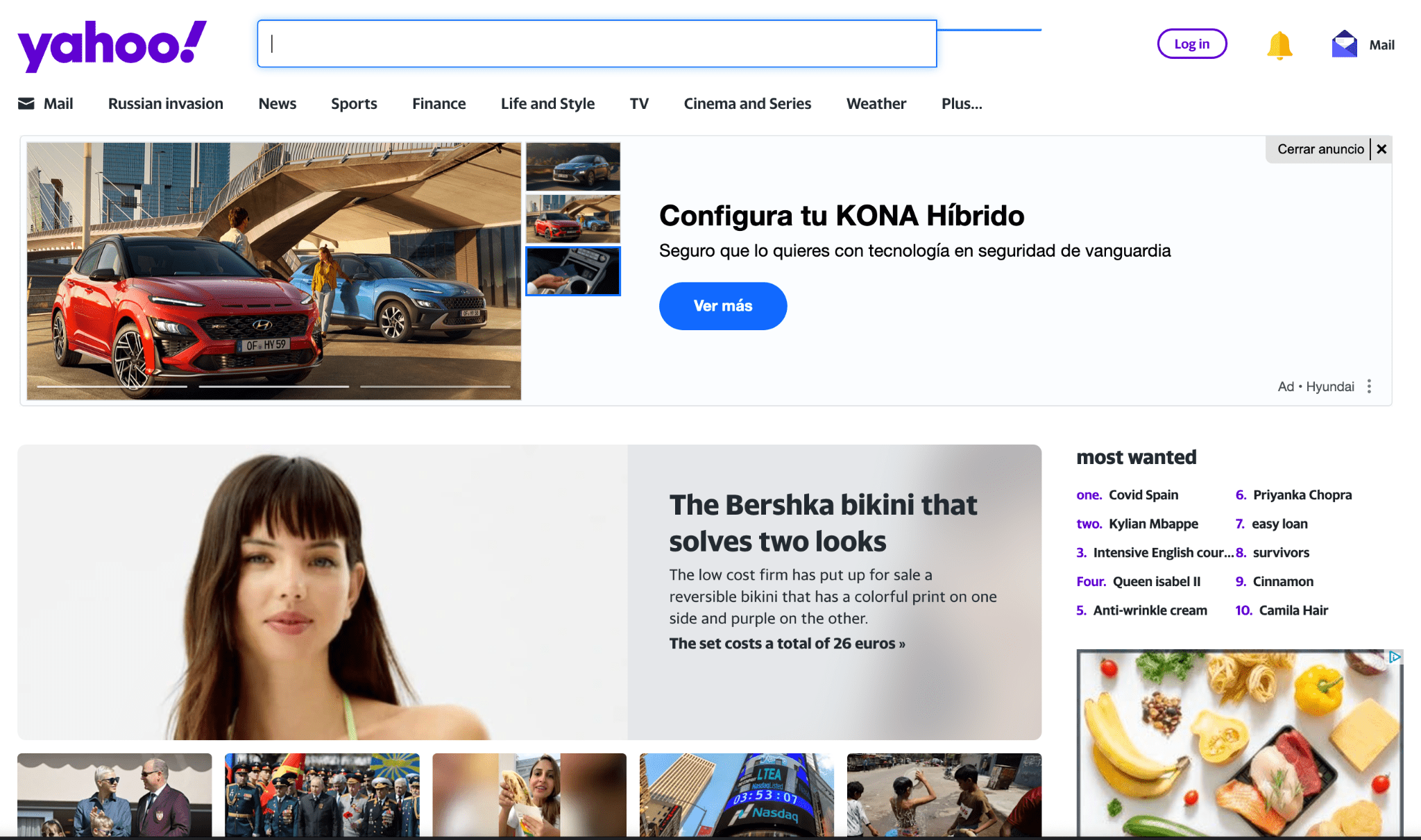
Other relevant Yahoo numbers:
- Desktop search engine market share is 2.62%.
- Mobile search engine market share is 0.79%.
- Like Google, Yahoo searches rely on trends.
Yahoo!’s Collaborative Past (and Present)
Another search engine with Stanford roots, Yahoo Search debuted in 1994. It was the first site to collate web pages across the internet. And everything was done manually, including URL descriptions. Informational sites could be added for free, but commercial sites had to pay $300 per year.
According to Data Hub, Yahoo had the largest chunk of the market in 2001 with 36.5%, while Google only had 12%. But that triumph didn’t last long. In 2002, Google overtook Yahoo in market value.
In the same year, Yahoo started acquiring a few companies, such as Inktomi. The next year (2003), they bought Overture Services, Inc. along with its subsidiaries, AltaVista and AlltheWeb. These ventures failed.
Soon after, around the early 2000s, Yahoo partnered with Google to distribute the latter’s search engine results and ads to regain market share. But Yahoo broke off the four-year partnership after developing their own internal search technology.
Striking out on their own didn’t pan out either, so they teamed up with Microsoft’s Bing. This collaboration ended abruptly after two years, pushing them to strike a new deal with Google for a second time. This time, they asked for greater control over choosing search providers and advertising partners, while maintaining the use of their own technologies.
In 2019, they also reunited with Bing. The goal was to reach a wider audience and allow marketers to create search advertising campaigns available on diverse platforms, such as Bing, Yahoo, and AOL.
Yahoo’s demise can be attributed to two things. One was focusing on running a business instead of improving user experience. Second, they refused to acquire their competitors when they were ahead. They had the opportunity to acquire Google for $3 billion, but decided against it when Google countered with a $5 billion deal.
Now that we’ve tackled the three top search engine players, let’s move on to these four specialized search engine providers: Baidu, Yandex, DuckDuckGo, and Ecosia.
4. Baidu: China’s Google And More (1.27%)
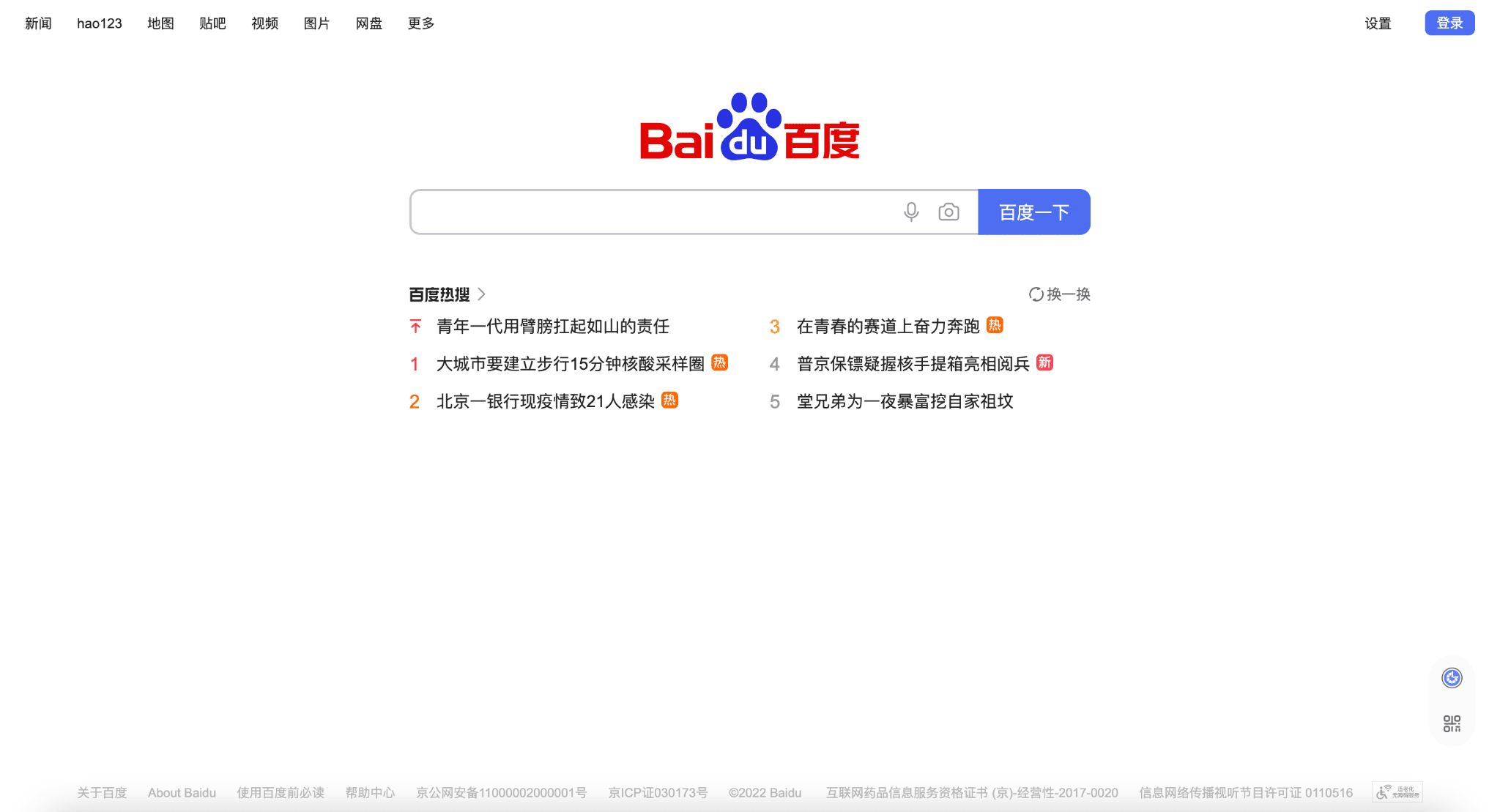
Baidu’s current market share worldwide sits at 1.27%. It’s the third-biggest search engine in Asia. But it’s only popular in China, where it beats Google by a wide margin. It doesn’t help that the market leader is partially blocked in China. So international brands looking to reach the Chinese market need to understand how it works. Here’s the search engine market in the country:
- Baidu: 79.52%
- Bing: 8.83%
- Sogou: 4.09%
- Google: 3.04%
- Haosou: 1.98%
- Shenma: 1.85%
Baidu launched as the first website in China in 2000. It shares a lot of similar features and services (including video, maps, and news) with Google, except that it censors content and searches to comply with Chinese laws. On top of that, it provides internet TV and an online encyclopedia, so it offers a more comprehensive experience to Chinese users.
5. Yandex: The Russian Googlette (0.87%)
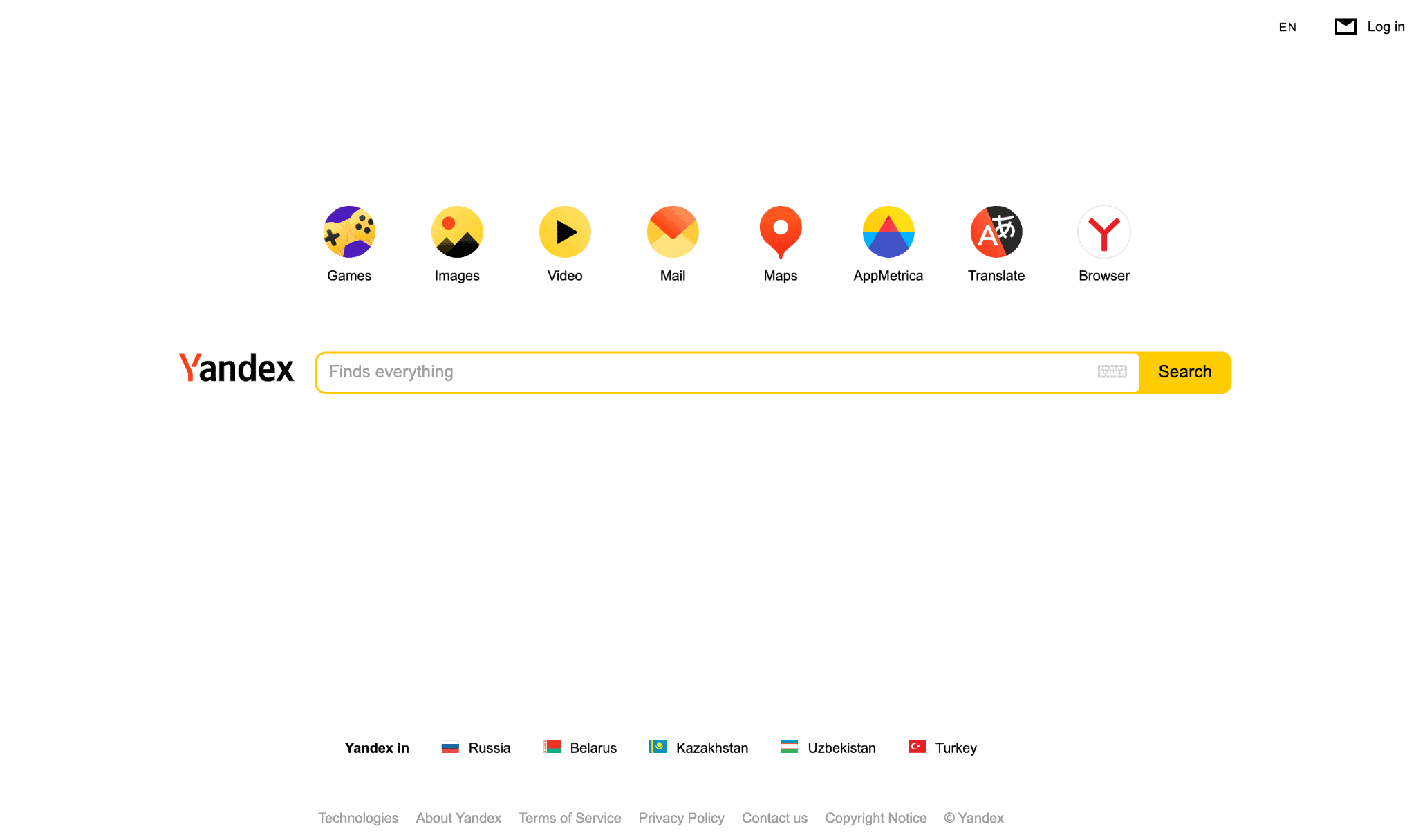
Yandex ranks fifth worldwide with a market share of 0.87%, but it takes the top spot in Russia and other nearby countries. It was launched in September 1997 and began adding contextual ads in 1998. Here’s the lowdown on search engine market share in Russia:
- Yandex: 60.87%
- Google: 37.91%
- Mail.ru: 0.98%
- Bing: 0.56%
- Rambler: 0.05%
- Others: 0.20%
Yandex doesn’t have the same exclusivity as Baidu, but it leverages the Russian language in a way that Google can’t. The platform is more local SEO-oriented than Google, which makes it easy to boost local rankings, but reaching a broader audience can be difficult.
All in all, it’s more geared towards Slavic-speaking users.
6. DuckDuckGo: For Privacy-Conscious Users (0.68%)
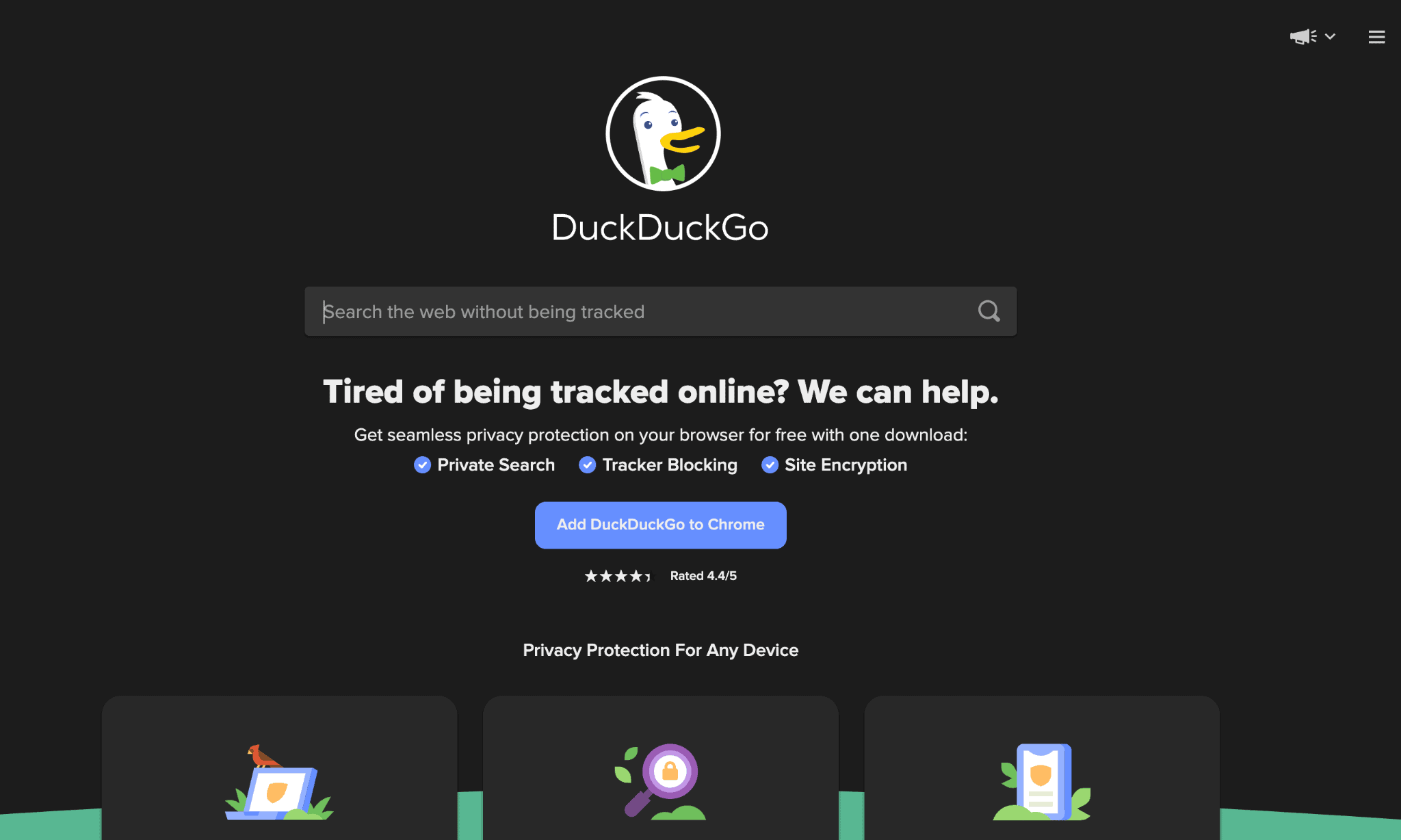
DuckDuckGo‘s strict privacy policy enables more people to protect their data as they browse online, by using its mobile app or Chrome extension. So while its current market share is only at 0.68%, we might see some changes in the future. EU’s General Data Protection Regulation (GDPR) increased the hunger for data privacy, and many users have begun to take the matter seriously. In fact, 70% of Americans worry about their personal data being out there on the open web.
Shifting to Google’s Incognito mode doesn’t really protect your searches. Fortunately, web browsers such as Mozilla and Safari have given users an option to switch to DuckDuckGo should they feel like it. Through these types of arrangements, the search engine might gain more market share in the future.
7. Ecosia: Search Engine For A Cause (0.11%)
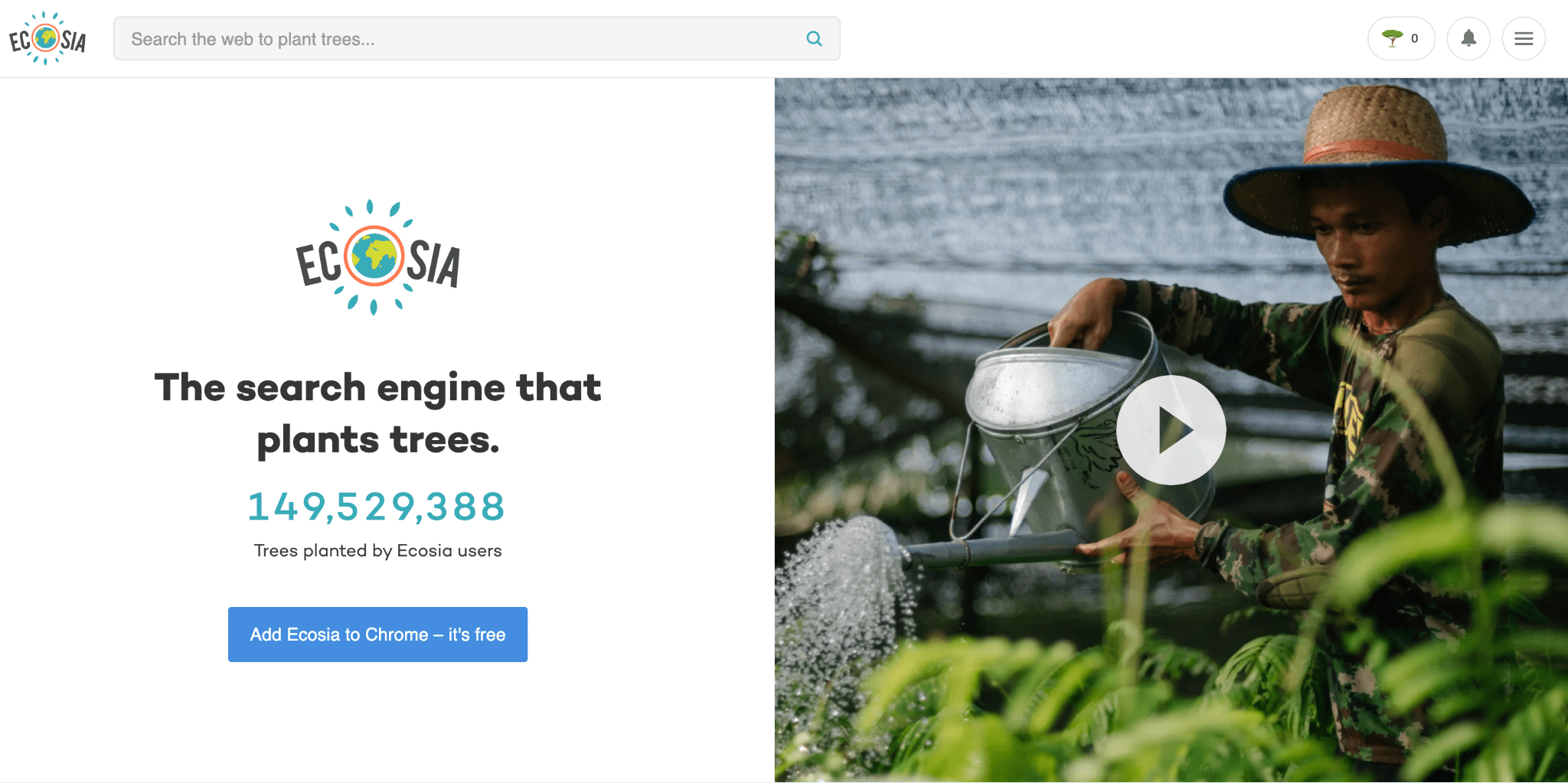
Ecosia is a search engine-slash-social business company, which gets most of its traffic from countries like France and Germany. In Germany, its share grew from 0.51% to 1.03% in two years. Its global market share, however, is much lower (0.11%).
This search engine doesn’t track click behavior, so you won’t spiral down a rabbit hole of repetitive, one-sided information, as you sometimes do with Google. It also promotes privacy protection, like DuckDuckGo. Every Ecosia search reduces CO2 emissions by 1kg, and 80% of their profits go towards reforestation.
Note: Both DuckDuckGo and Ecosia rely on Bing for results.
Other non-web search engines: Amazon, Facebook, YouTube
Google continues to be the most popular search engine, but its runner-ups vary. Specialized search platforms like YouTube, Amazon, and Facebook all succeed Google, competing for consumer attention against the industry leader.
The truth is, the top search engines’ battles with these platforms are fiercer than with other search engines.
YouTube has 2.56 billion users, generates about 25% of mobile traffic, and competes closely with Google in terms of knowledge sharing, although this doesn’t really affect the tech giant as they’ve owned YouTube since 2006 (a year after it came into existence).
Facebook, with its 2.9 billion active users, is toe-to-toe with Google for advertisements. With cheaper CPC costs, a passive marketing approach, and comprehensive targeting options, this social channel has plenty up its sleeve.
Amazon and Google rival each other in the product search market, with the former holding a 54% share. Finding products online is different from researching more information–and it appears that Amazon is giving users more of what they want to see.
These numbers prove that marketing professionals need to keep an eye on social media platforms and marketplaces that might decrease the relevance of search engines.
Search Engine Market Share: Conclusion
Google is the leader of the search engine pack–no doubt about it. And it has been for a long time. Generally, displaying ads and optimizing your content on the platform makes all the difference, but depending on your current business situation or personal needs, leveraging other search engines may be necessary.
Have any questions or comments on the topic of search engine market share? Let us know in the comments below!
THE BEHIND THE SCENES OF THIS BLOG
This article has been written and researched following a precise methodology.
Our methodology


